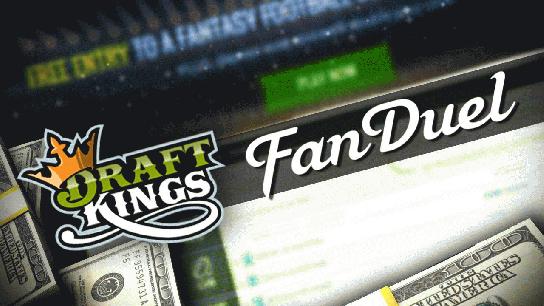By: Devin Woolf
Have you ever attended a fantasy draft party? Cheered for a Patriot’s rival because one of their players was on the starting lineup of your fantasy team and would get you the win in your matchup for the week? If you can relate, you are among hundreds of thousands of other individuals who participate in fantasy sports teams.
In a fantasy league, you create a team by selecting players through a draft and competing against your friends for prize money and bragging rights. The league collects money at the beginning of the season and distributes winnings at the end. This style of gambling is becoming increasingly popular. The fantasy sports market, including DraftKings, a Boston based startup and its rival FanDuel, is valued at over $1,000,000,000. This year alone, both companies have spent over $31 million dollars in marketing during National Football League (NFL) commercials.
Last week, there were allegations that a DraftKing’s staffer allegedly used data from other player’s NFL picks to create his own fantasy team on FanDuel, where he was able to win $350,000. With increasing popularity, and the recent allegations of insider trading, Massachusetts and other states are looking into regulating these fantasy sports startups.
Fantasy sports are an unregulated area of gambling. This may seem surprising for a state like Massachusetts where issues over casinos have been going on for ten plus years, and the legislature is currently reviewing proposed bills to regulate technology startups like Uber and Lyft. But for over four years, Fantasy sports teams have seemed to slip through the cracks, until now.
Fantasy sports are exempt under the Unlawful Internet Gambling Enforcement Act of 2006. Within the text of 12 CFR 23, there is a written exemption for bets and wagers that are exempt from the legislation. Within this section, there is an explicit mention of online fantasy sports team, laying out conditions that if met, will excuse the bets and wagers of fantasy teams from being illegal.
There has been talk of regulating the industry after the recent allegations of insider trading. Treasurer Deborah Goldberg has suggested creating a lottery-based fantasy sports site where the state would receive a portion of the revenue. Regulating fantasy sports teams would be as simple as getting rid of the exemption in the Unlawful Internet Gambling Enforcement Act of 2006. Governor Baker has said publicly that he did not believe it was a good idea to create a state lottery-based fantasy sports site. Without more details of what this proposed program would look like, we should let the lottery focus on their area of expertise.
The allegations of insider trading need to be addressed, but since there have been very few complaints about fantasy sports, (besides complaints by those who have drafted losing teams), the legislature should take the overall consumer satisfaction into consideration. There has only been one reported complaint in Massachusetts to the Office of Consumer Affairs and Business Regulation, alleging DraftKings was condoning online gambling. The Commonwealth should approach regulation of fantasy sports teams with caution, without ruining one of the Commonwealth’s favorite pastimes.

